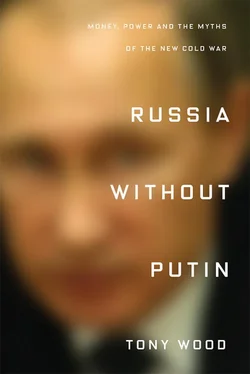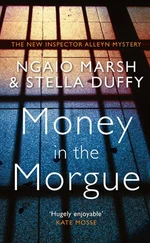It’s that basic disconnection between the political goals of the Navalnyi-led opposition and the social concerns of the broader array of movements that remains, in my view, the great weakness of the anti-Putin opposition as a whole – and it’s only by bridging that gap that the movement will be able to present a viable challenge to the system in the longer run. For that to take place, Putin’s opponents need to do more than imagine another way for Russia to be governed and for its entrepreneurs to make money: they must address the questions of what kind of lives and livelihoods Russia’s citizens are entitled to, whose needs are to be prioritized and what, in the end, the purposes of economic growth are. They would need, in short, to envision an alternative model for Russian society. This would be an extremely tall order for any opposition movement – and not just in Russia. But there as anywhere else, it’s only by keeping one eye on that horizon that progress toward genuine change can be made. For now, that remains a distant prospect, and whatever small gains a progressive anti-Putin movement might make at home are likely to be overshadowed by events on an increasingly tense and turbulent international stage.
CHAPTER 5
After the Maidan
THE EVENTS OF THE PAST few years have created a glaring divide between Russia and the West. How and why did this happen? In the West, the story of how relations with Russia descended to their current abysmal level is often told as one of an ominous drift, under Putin, back toward a Soviet-style showdown between Moscow and its former adversaries – prompting many to conclude that the two sides found themselves waging a ‘New Cold War’. From this perspective, the clashes of the 2000s, especially the Russo-Georgian war of 2008, were early warning signs of Russia’s steady regression to Communist-era thinking, after the liberal interlude of the 1990s. Everything that has happened since 2014 – the annexation of Crimea, sanctions, clashes over Syria, allegations of Russian meddling in the US presidential election – has merely conformed to a sinister pattern that was already in place.
But there are several things wrong with this story. One is the substantive continuities between Putin’s rule and that of Yeltsin; indeed, both regimes should be seen as successive phases in the life cycle of a single post-Soviet system. Secondly, the idea that Russia has wilfully reverted to hostile Soviet type on the international stage rests on an extraordinarily one-sided view of what has actually happened since 1991 – one that ignores the West’s own actions, which have forcefully shaped Russia’s decisions. Indeed, the fundamental fact that has defined relations between Russia and the West since the end of the Cold War is the huge imbalance in power and resources between the two sides. All other geopolitical calculations have flowed from it – including both the West’s impulse to drive home its advantage through the expansion of NATO, and Russia’s growing resentment of that process, as well as its inability to halt or reverse it.
Those who point this out are often depicted as Kremlin stooges, as if to note a disparity in power between the two parties were somehow to take the weaker side. To be sure, Putin has found sympathizers in unlikely places – on the left as well as the right. Some, for example, insisted on seeing Russia’s bombing of civilians in Syria as part of a ‘counter-hegemonic’ design. But there is a huge distance, politically and ethically, between measuring how much power Russia really has and defending what Putin does with it. One of the effects of the escalating rhetoric of the ‘New Cold War’ has been to conflate the two, and thus to prevent any serious discussion of the actual international balance of power. Yet it’s impossible to understand the course of relations between Russia and the West over the past three decades without taking the disparity between the two sides into account.
Once we do, a rather different picture emerges. The events of 2014 and after are indeed highly significant in global terms, not because they confirm any atavistic tendencies on Russia’s part but because they represent a break with the dominant foreign-policy framework of the post-Cold War period. They signal the demise of the idea of Russian integration or alliance with the West. For much of Russia’s modern history, it was relations with Europe and, later, the West more broadly, that shaped the way the country’s leaders imagined its role in the world – whether that meant being engaged in inter-imperial competition, locked in Cold War antagonism, or set on post-Soviet dreams of convergence. {1} 1 For a lucid and balanced account, to which the following discussion is indebted, see Andrei Tsygankov, Russia’s Foreign Policy: Change and Continuity in National Identity , 4th edition, Lanham, MD 2016.
After 1991, the Russian elite tended to see the country’s future as lying either alongside or within the liberal internationalist bloc led by the United States. This commitment first gained ascendancy in the Kremlin under Gorbachev, and reached its peak during the Yeltsin years; but it remained substantially in place under Putin and Medvedev too – lasting much longer than is assumed by the general run of Western media commentary. It was only finally undone in the wake of the Ukraine crisis, to be succeeded by a more combative vision.
The downfall of the pro-Western idea in Russia represents a major geopolitical watershed in its own right. It marks our entry into a period of great uncertainty, in which relationships between the major world powers are likely to be less stable and less predictable than they have been for a lifetime. The consequences of this will resonate far beyond the scandals over Russian influence buying and electoral meddling that have occupied so much attention in the US and Europe over the past few years. Indeed, they will strongly affect how the rest of the twenty-first century unfolds. All the more reason, then, to get a clearer understanding of how and why relations between Russia and the West deteriorated as they did.
The end of the Cold War brought a sudden and dramatic downsizing for Russia, in several respects. The most literal one was territorial: when the red flag was lowered from above the Kremlin at the end of 1991 and replaced with the tricolour of the tsars, the Russian president ruled within borders that roughly matched those of 1700. The fourteen other republics that had composed the Soviet Union became foreign countries overnight, and though Russians until recently referred to the ex-USSR as the ‘near abroad’, these states have moved inexorably out of Moscow’s orbit in the years since the Soviet Union’s fall – a historic reversal of centuries of regional dominance. Outside Russia the break-up of the USSR was often depicted as the resumption of a long process of decolonization, but in Russia itself, the national sovereignty of former Soviet territories often produced a confused post-imperial resentment.
The sense of a reduction in Russia’s stature was also fuelled, of course, by its rapid pullback on the global stage. By the mid-1990s Moscow had withdrawn its troops from Eastern Europe, the Transcaucasus and Mongolia and had all but shut down its bases in Cuba and Vietnam. Over the course of that decade Russia underwent what a former Soviet military analyst described as ‘one of the most stunning demilitarization processes in history’, shedding two-thirds of its armed personnel and slashing defence spending by 95 per cent. {2} 2 Dmitri Trenin, Post-Imperium: A Eurasian Story , Washington, DC 2011, p. 75; figures from SIPRI database.
The USSR’s military-industrial complex had notoriously swallowed an estimated 15 to 20 per cent of Soviet GDP; for most of the 1990s, the equivalent figure for Russia was about 4 per cent of a far smaller GDP. But perhaps the true measure of Russia’s military slump came in the First Chechen War, when a poorly equipped, ill-trained army of conscripts – many of them teenagers – was sent to crush separatist militias and was instead fought to a stalemate in the ruins of Grozny. One of the most acute contemporary assessments of that war dubbed it the ‘tombstone of Russian power’. {3} 3 Anatol Lieven, Chechnya: Tombstone of Russian Power , New Haven and London 1998.
Читать дальше












